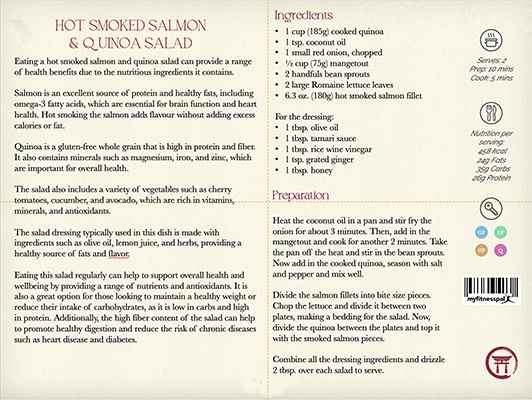
This summer, we are thrilled to introduce the dazzling, healthful world of Torri Enso’s Super Summer Salads. Steeped in centuries of global tradition, salads have a diverse and vibrant history that resonates on every plate. From the simplest greens to the most elaborate combinations, salads are a testament to culinary creativity and nutrition working hand in hand. Let’s embark on a journey through the past and around the world, to explore the compelling benefits of salads and some super salads that you should not miss.
The Salad Story: A Bite into History
The concept of salads dates back to the Romans and Greeks who enjoyed mixing greens and dressing them with oil or vinegar. However, the salad as we know it today began to take shape in the 17th century, when recipes included a variety of ingredients like lettuce, herbs, flowers, cheese, and more. Salads have evolved into a culinary art form, a versatile course that can range from a side dish to a main course, reflecting the tastes and cultures of regions around the globe.
Reaping the Benefits: The Power of Salads
Packed with fibre, salads are a boon for digestive health. Their richness in vitamins, minerals, and antioxidants boosts immunity, while their low-calorie count aids weight management. Including a diverse selection of vegetables, fruits, proteins, and healthy fats can even reduce the risk of chronic diseases. Whether it’s for your heart health or your waistline, a salad a day keeps the doctor away!
This summer, relish the delightful journey of Torri Enso’s Super Summer Salads – a celebration of history, health, and global flavors. Enjoy your salad days!



Enter your email below to access your FREE download.
Measuring nutrition intake
Measuring nutrition intake, including calories, fats, proteins, and carbs, offers several benefits for individuals who are conscious of their health and well-being. For those that are health conscious we have have listed the nutritional values also enabling you to use the bar card for further details via MyFitnessPal,
Understanding macronutrient ratios: Measuring nutritional components allows individuals to analyze their macronutrient ratios. This knowledge helps ensure a balanced diet that meets individual dietary needs. For example, athletes may require higher protein intake, while those following specific diets (e.g., low-carb or high-fat) can monitor and adjust their intake accordingly.
Identifying nutrient deficiencies or excesses: Measuring nutrition intake provides valuable insights into nutrient imbalances in the diet. It helps individuals identify potential deficiencies or excesses in calories, fats, proteins, or carbs. By tracking these values, individuals can make informed decisions to address any nutritional gaps or adjust their intake to align with their specific needs.
Tailoring dietary choices: Measuring nutrition intake empowers individuals to make informed choices about their diet. It helps them identify which foods are high in specific nutrients and make conscious decisions based on their nutritional goals. For instance, someone aiming to increase protein intake can select protein-rich foods, while those managing carb intake can choose foods with lower carbohydrate content.
Personalized meal planning: Measuring nutrition intake facilitates personalized meal planning. By knowing the nutritional content of different foods, individuals can create well-balanced meals that meet their specific requirements. This approach supports a varied and nutritious diet and can help individuals achieve their health and fitness goals effectively.
Tracking progress and making adjustments: Measuring nutrition intake allows for monitoring progress over time. By consistently tracking calories, fats, proteins, and carbs, individuals can evaluate the effectiveness of their dietary choices and make adjustments as needed. This helps in maintaining long-term consistency and achieving desired outcomes.
Promoting overall health and well-being: Measuring nutrition intake contributes to overall health and well-being. A balanced intake of calories, fats, proteins, and carbs supports energy levels, organ function, muscle development, and various physiological processes. By monitoring these components, individuals can ensure they are nourishing their bodies appropriately.





